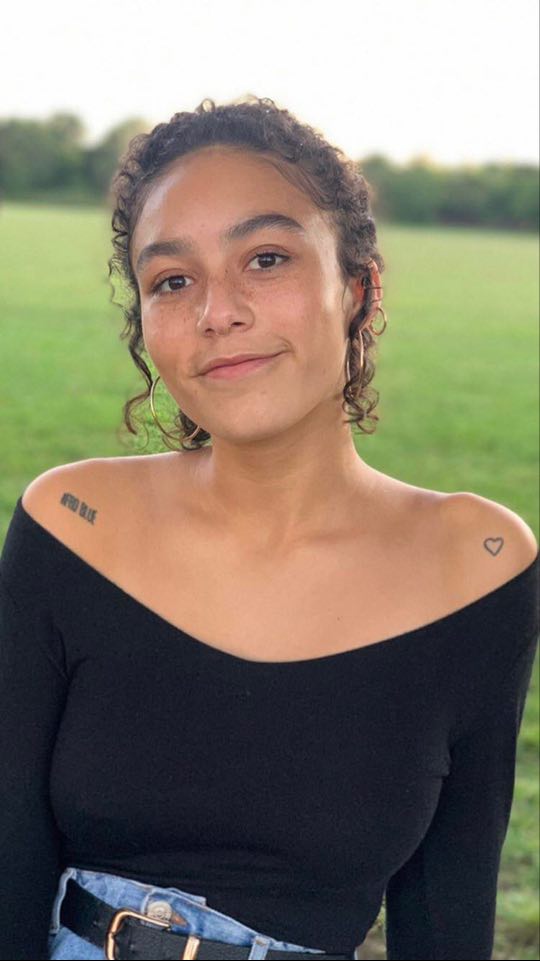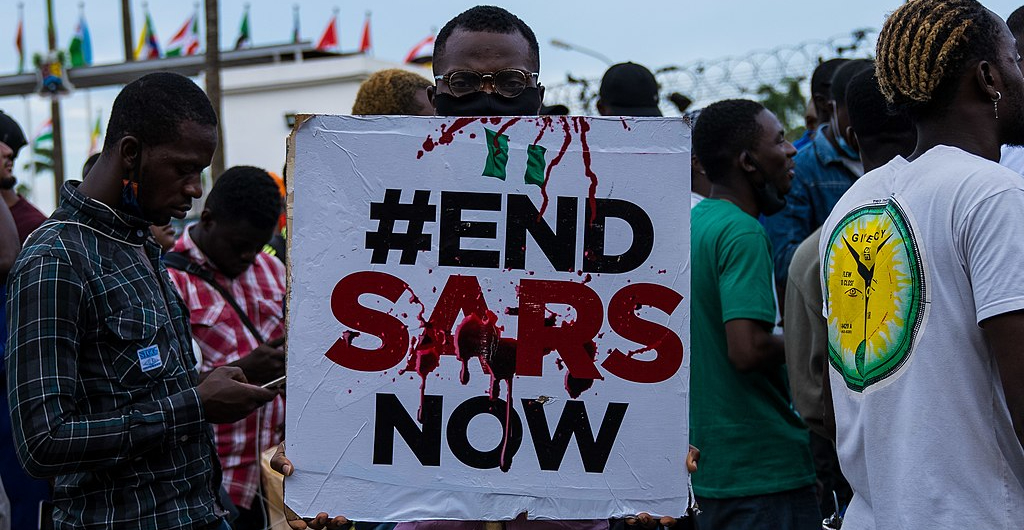Hannah Francis provides an update on the anti-police brutality protest movement sweeping Nigeria and explains how we can provide support and solidarity from Britain.

After the Lekki Toll Gate Massacre in late October, the #EndSARS movement took to major cities across Nigeria to continue their mobilisation against President Muhummadu Buhari’s government and the brutality of the SARS unit. On December 7th the second phase of protests took place reportedly in the cities of Lagos, Abuja, Port Harcourt, Delta and Bayelsa. However, some reports claim that the protests took place across 17 states including Osun, in which the youth gathered outside of the Osogbo House of Assembly[1].
A few days before the protests, the demands of protestors were circulated on social media sites, calling for President Buhari, Governor Babajide Sanwo-Olu, and Army Liutenant General Tukur Yusuf Buratai to resign and face the International Criminal Court for killing innocent Nigerians at Lekki Toll Gate. Alongside this, protestors also called for the release of all protestors from jail, the unfreezing of their bank accounts and a Nigerian referendum.
The peaceful protests stretched across the nation, and yet again Buhari’s police responded with force and violence in the days to follow. Various posts and videos on Twitter began to surface, of crowds of protestors chanting their demands but also of many injured at the hands of the police.
On December 10th reports of violence following the national protests earlier in the week started to appear. As reported by Elevation News via Twitter, a Keke napep driver was shot and killed by Nigerian police for refusing to pay a N100 bribe in Rukpokwu, Port Harcourt. Both videos and images of this incident, amongst many others, were circulated online, evidencing the traumatising reality of the threat of SARS, despite its apparent disbandment, and the poor governance of Nigeria under Buhari.
Following the Lekki Toll Gate massacre, the EndSarsUK Instagram page notified its followers of a public online panel discussion on November 19th. The panel thematically covered the personal accounts of the first phase of protests, how to support Nigeria outside of the country and mobilise grassroots organisations, and the West’s involvement in equipping the Nigerian military.
Seemingly absent from BBC media in Britain, our country has played a significant role in the “training of security forces in Nigeria...” and has licensed “£43 million of weapons”[2] to Nigeria since 2015, demonstrating Britain as a key player in the continual procession of violence across the country. However, what can be deduced from the themes of this panel, and the entirety of the #EndSARS movement as a whole, is that social media has been a key part of the exposure of the activities of Buhari’s and the neo-colonialism of Britain’s interest in West African military.
Speaking with a Nigerian comrade, it has been revealed that “Capitalism [has] taken hold here… People are scrambling for food … The truth is people need help down here…” It is clear that the deliberate harm and debilitation of Nigeria’s youth, LGBT+ communities and working masses at the hands of Buhari highlights the necessity for referendum and the abolishment of Nigeria’s archaic ruling class leadership. Furthermore, it is also demonstrates that Britain is not innocent, and continues to fund and support the current governance of Nigeria on the condition that it maintains a neo-colonial, capitalist system.
It is absolute that we express our support for the protestors, predominantly made up of the youth, and find ways in which to support them. Many grassroots organisations such as the Assata Collective (who collected funds to donate to Queers & Trans Nigerian protestors) and the Feminist Coalition (a group of Nigerian feminists who formed in July 2020 and distributed fundraiser donations toward medical, legal and mental health aid for protestors) have come together to provide support, financial aid and information on the events taking place in Nigeria. Both of these collectives, among many, remain active and present on social media and provide a transparent breakdown of the distribution of their funds. Within the last 5 weeks, Global Citizen published an article by Akindare Okunola[3] detailing some organisations supporting the fight against police brutality and how we can contribute too.
In solidarity, we must do our utmost keep the #EndSARS movement as visible as possible. It is vital that we extend our support to Nigerians and the diaspora, and continue to emphasise the importance of this movement in the fight against capitalism.
Hannah Francis
[1] Adejumo Kabir, “Why we resumed #EndSARS protest in Osun – protestor”, Premium (Dec 8th, 2020)
[2]Emmanuel Akinwotu, “UK government ‘needs to come clean’ on funding for Nigerian police”, Guardian (Nov 24th, 2020)
[3]Akindare Okunola, “#EndSARS: 8 Organisations Supporting the Fight to End Police Brutality in Nigeria”, Global Citizen (Nov 11th, 2020)



